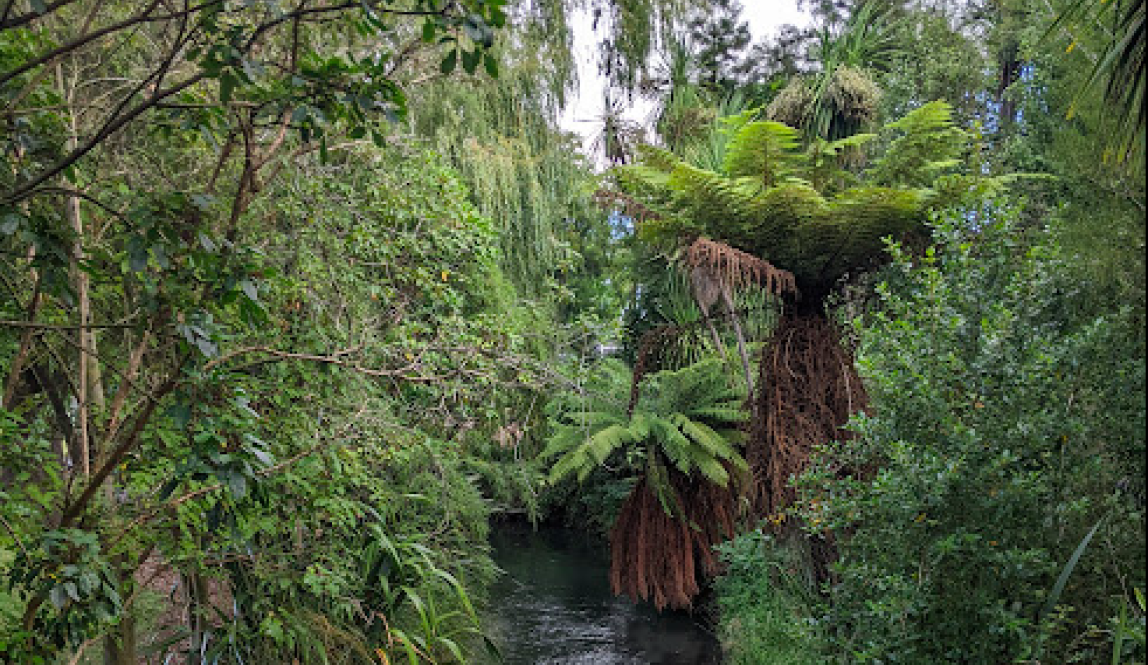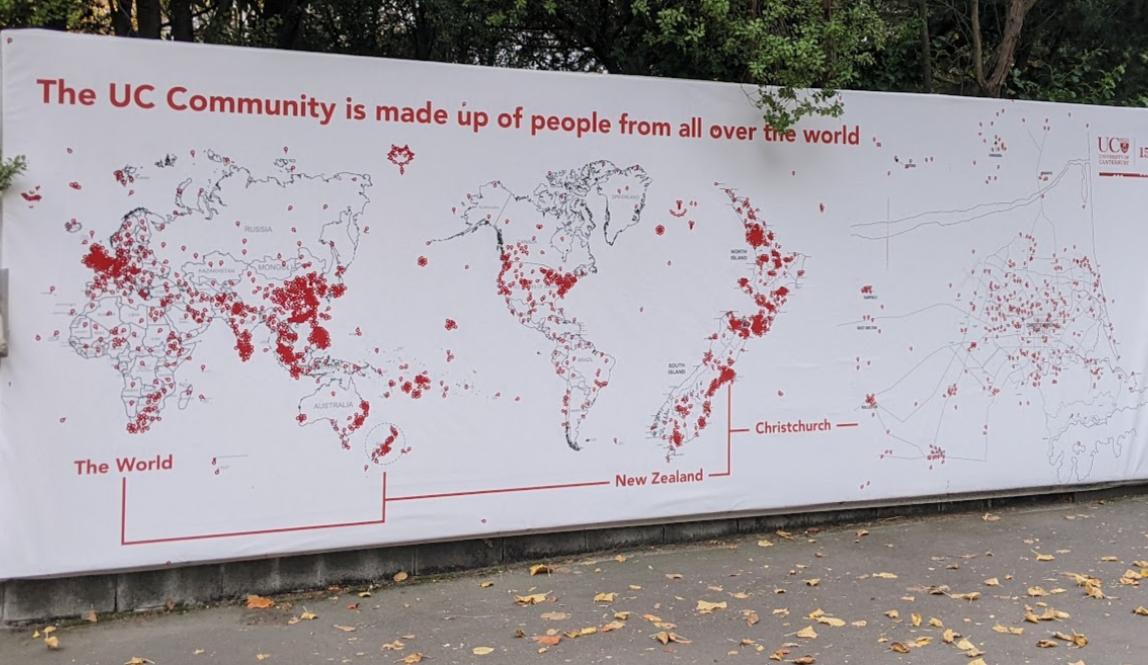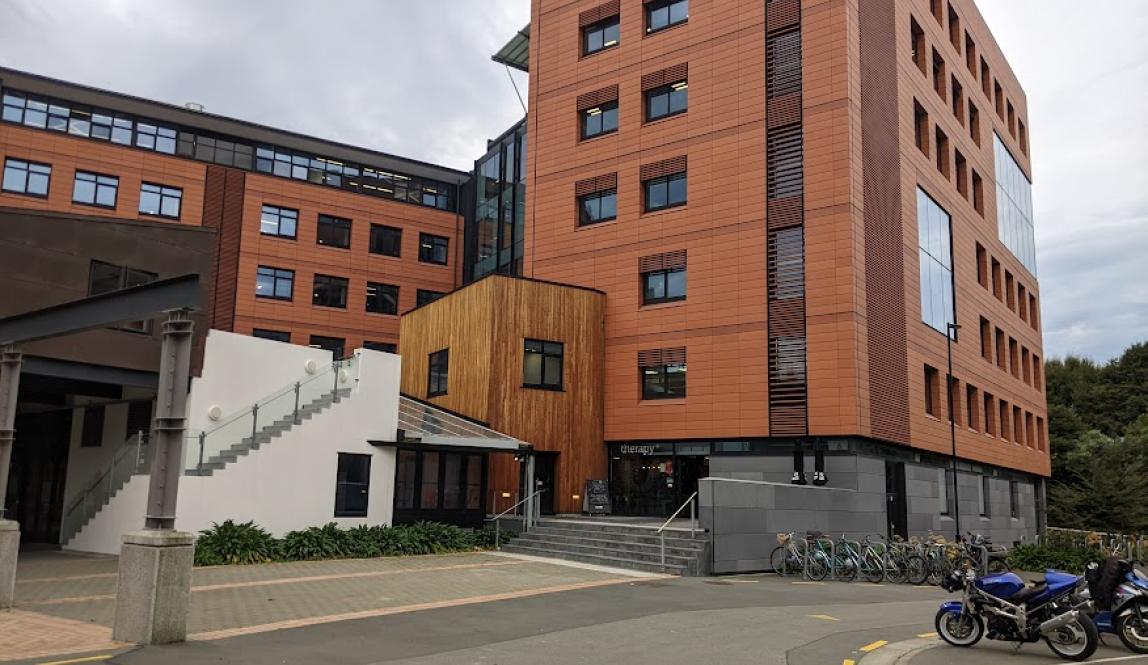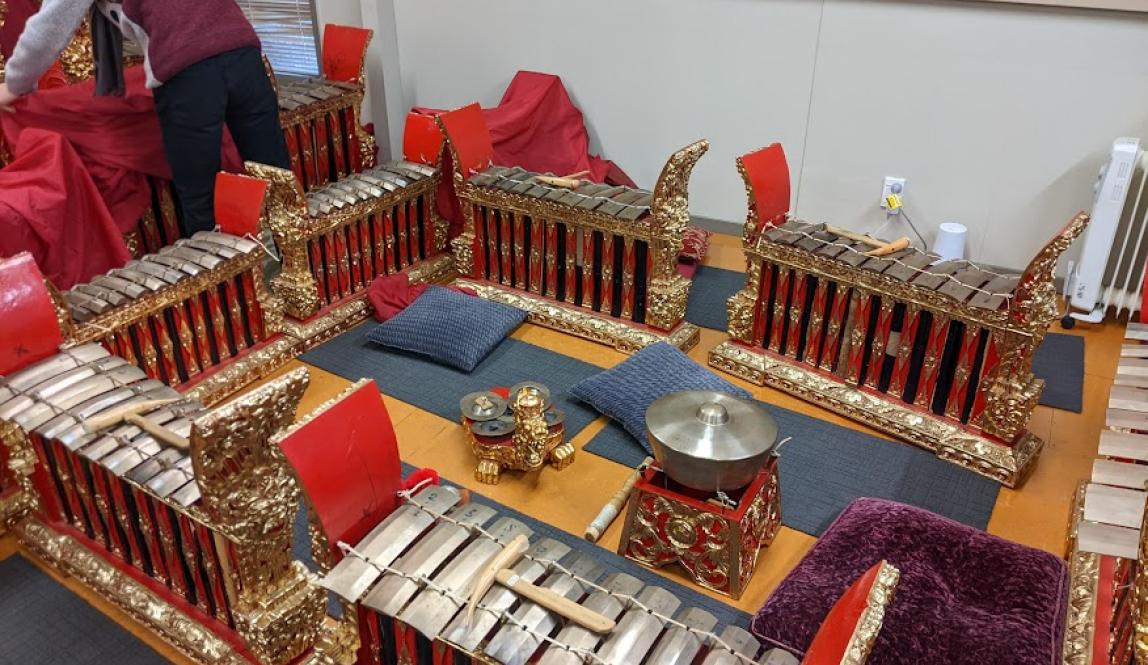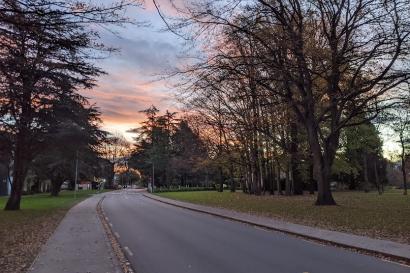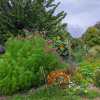I have to confess my classes abroad haven’t received the same amount of attention that they usually do back home. When you’re in a different country where new and exciting experiences are right on your doorstep, it can be difficult to convince your brain to stay in and study instead of going to the beach, doing an overnight tramp, finding new food and entertainment around Christchurch, or spending time with new friends, etc. I enjoy my classes and make sure my work gets done, but I have also allowed myself to lean into the “abroad” part of study abroad, instead of focusing entirely on the study part. That being said, I do have some pretty cool classes this semester, and would like to share a bit about them as well as some tips for being a UC student.
Classes!
MAOR-107/PACS-102: Te Ara o Tawhaki: Maori Thought, Beliefs and Practices
As the name suggests, this course provides an overview of Māori culture. It is one of several intro-level Māori classes available at UC, and if you're studying here, I highly recommend trying to take at least one. I chose this class specifically because it touches on multiple aspects of Māori culture. We have learned about traditional navigation techniques, myths and legends, concepts of land rights and stewardship, genealogy, migration history, traditional practices, and more. While we don't have enough time to cover all those topics with great depth, having at least a general understanding has given me a clearer context and deeper appreciation of other instances of Māori culture that I encounter while out in the real world of NZ. Māori culture is often integrated with the dominant culture here, and context isn't always provided, so having a background from this class has been really helpful.
MUSA-132: Musics of the World
I'm planning to transfer this course back for my music minor. Like many classes here, it is taught by multiple lecturers who come in just to teach about their area of expertise. I like that model for this class because it means each focus area is taught by someone who really knows what they're talking about and has studied it for a long time, instead of one person who has a broad but shallow understanding of music from around the world. We have learned about music from Ireland, China, Nepal, Haiti, Jamaica, Brazil, Senegal, Guinea, India, Indonesia and more. You can see why it would be difficult for just one person to lecture on all of that, but that seems like the typical model in the U.S.
My favorite part about this class is the workshops. Workshops are like the equivalent of labs for non-science courses here. Each week we have a 1-2 hour workshop where we try out one or more of the musical styles we learned about that week. On the first week we had an Irish "session", which is an informal gathering (usually in a pub) to play folk music. We all brought instruments like guitars or violins if we had them, and the rest of us sang or borrowed from someone else. Then the lecturer taught us some folk tunes by ear and we just had a fun jam session, and even learned some Irish dancing with it. Another week we played an Indonesian gamelan together, which is a set of instruments that resemble xylophones, as well as gongs. I will include a photo in this post. I haven't gotten to practice music here as much as I would have liked (the piano practice room is pretty far away), so I really enjoy the chance to engage with music in these workshops each week.
CHCH-101 (Christchurch 101): Strengthening Communities through Social Innovation
This class is a hidden gem that I highly recommend for anyone with space in their schedule. The main class coordinator is a super nice guy from Tennessee, named Billy, who has years of experience and tons of passion for volunteering and community building. The first term of the class was almost completely structured around once a week field trips, where we went all over the city to volunteer with a variety of organizations. We did mulching and weeding at a climate action campus, painted a mural at the future site of a youth resource center, moved food at a food bank run out of a family's house, and planted trees at a nature preserve nestled in between neighborhoods. The first week we also did a walking tour of Christchurch where Billy showed us examples of community building and regeneration after the earthquakes of 2010-2011. Overall it has just been really valuable to have a class where a knowledgeable leader takes us all over Christchurch to give back to the community.
The second term, we worked on group projects to benefit the community. My group went to a local school to do a sustainability lesson and upcycling activity focused on clothing waste. Groups can be as creative as they want, and you even get $200 to spend on your project. One of the last things I like about this class is that it includes people of all ages. It seems a lot more common in NZ for people to start or even return to school after a few or even 20-30 years. Having a student age range of 18-50+ creates a different vibe in the classroom, and means you get to meet people from multiple walks of life. Billy even encouraged one of the older students in the class to bring her young kids along to one of our field trips, and we all enjoyed watching them join in on the volunteering.
PACE-295: Internship
I knew when I chose this program that I wanted to do some kind of experiential learning in order to get out of the university bubble, and an internship was a great opportunity for that. PACE is a program through UC that matches students with internships for credit. Here is the simplified version of what I went through to enroll:
- Worked with my IES Abroad advisor to express my interest in PACE
- Was contacted by someone in the PACE program to set up an interview
- Sent in a resume and write up of what kind of placement I was interested in
- Did an interview over Zoom with the lovely Sasha from PACE, where we discussed my interests, academic background, and placement priorities
- Eventually matched with a placement and put in touch with director of that organization
- Another Zoom interview, this time with the director of my possible placement to confirm we were a good match and to discuss my possible projects
- It was a match! Now time to do some paperwork
- After arrival In NZ, completed induction process and more paperwork
As you can tell, enrolling in this class required some time and effort before I even arrived in NZ, but it was definitely worth it, as I love my placement. It is at Ōtautahi Creative Spaces (https://otautahicreativespaces.org.nz/) which provides artistic opportunities for over 100 people with experiences of mental distress or trauma. It’s not exactly art therapy, but rather opportunities to participate in weekly artistic workshops, because they believe in the transformative power of creativity. I heard from many people there that their artistic practice changed or even saved their life, and that having creativity as an outlet and a way to establish a routine has really helped them cope with whatever mental health concern they have. Ōtautahi Creative Spaces has groups for different interests or communities, such as a writer’s group, a Muslim women’s group, a LGBTQ+ youth group, a Māori group, etc.
During my time there, I got to write a press release, do research on possible donors, attend workshops, design and deliver my own workshop on creative movement (kind of theatre/dance-esque), and work on a massive fundraising campaign to publish a book honoring the upcoming 10 year anniversary of the organization (https://boosted.org.nz/projects/10-years-of-thriving-through-creativity). It was a really unique and valuable opportunity to work in the intersection of mental health and creativity, and definitely helped me experience Kiwi culture in a different way than inside the UC bubble. Honestly I could do a whole other post on what a groundbreaking and welcoming community Ōtautahi Creative Spaces is, and how fortunate I felt to be placed there, but for now I’ll have to leave it at this.
The one other thing I should mention about this class though is that the internship itself is only half your grade. The other half is classwork that is supposed to help you reflect on your work and continue to develop professionally. I have to admit I'm not a big fan of the classwork part. A lot of it feels repetitive and like things I've already learned (like how to give a presentation or make a CV) but completing it and attending the lectures is mandatory. However, putting up with the classwork part was worth it to get to do the internship piece that I loved so much. I should also note that our lecturer said the PACE program is changing after this year, so the model might be better in future semesters.
And now, a few tips and some helpful info about being a student at UC:
- Do a chill semester if you can: I know this definitely isn't viable for everyone, but if you're able to take lower pressure, NZ specific courses during your time abroad, I really recommend it. Not only have I been able to take some really cool courses, since they are mostly 100 level I have more time to travel and explore. If you are tight on space in your degree though and have to take upper level major courses while here, don't worry. You will still have time to explore, you will just need to be a little more strategic about how you manage your time. However, I would highly recommend only taking 60 points of credits. It's tempting to try to fit in the max 75 but 60 will feel like more than enough once assignment deadlines roll around.
- To avoid being the lost looking American: UC is actually a fairly compact and walkable campus, with only a few buildings really out of the way. However it can still be a little disorienting before you get familiar with it. I found it really helpful to walk around a day or so before classes started and just find each building I had classes in, in the order I would be going there.
- Be in the know with UC GO: you should 100% download the UC GO app. I know the last thing most people need is yet another app, but its map feature helped a lot the first few weeks. It also provides access to your email, the Learn page (like Moodle), your timetable (class schedule), and a bunch of other stuff.
- What the heck are tutorials?: Many classes at UC have tutorials which were a mystery to me until I got here. Also referred to as "tuts" (toots) they can take different forms depending on the class, but usually they are sessions with a smaller group of people where you do activities to review/clarify lecture material, have small group discussion, ask questions about assignments, etc. Sometimes the lecturer is there and sometimes they are run by graduate tutors. Especially in larger classes, there are usually multiple tutorials a week, and you can choose which one(s) to enroll in. Unlike lectures, attendance is often taken and graded, so if you have a schedule clash between tutorials (or labs or workshops) you'll probably have to drop one of those classes. Schedule clashes between lectures, however, are usually okay because the lectures are recorded 99% of the time. Always feel free to check in with the course coordinator if you’re worried about clashes though, as they are usually very friendly.
- Front load: NZ classes are different from U.S. ones in that it's common to only have 2-5 items of assessment for the entire semester. When you only have a few due dates a semester it's easy to feel like you don't have any homework (except for readings, but those aren't graded usually). But then the due dates all roll around at once and suddenly you're trying to study for a test, do a video reflection, write up a project proposal, and do a quiz all in one week. (Not that I'm speaking from experience of course.) Start and maybe even complete what you can ahead of time so that you're not rushing to finish the project that's 50% of your grade. That being said, don't get hung up on getting perfect grades, especially because…
- Eaasssssyyy grading scale: the grading scale is adjusted here to be a lot more lenient than the U.S. An 85 is STILL AN A. So basically you can miss a few points and still get a good grade.
I hope this post was helpful, especially for the future UC study abroad students out there. Ask for help when you need it, try not to stress too much about classes, and enjoy each moment as it comes. The semester flies by no matter what classes you’re taking :)
Cheers!

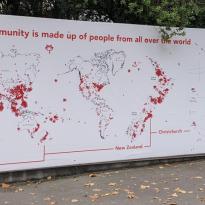

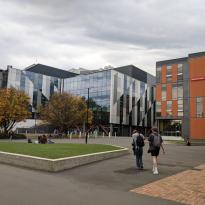
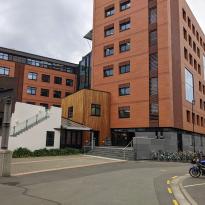
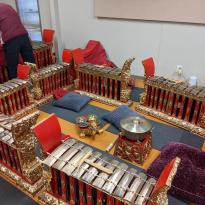
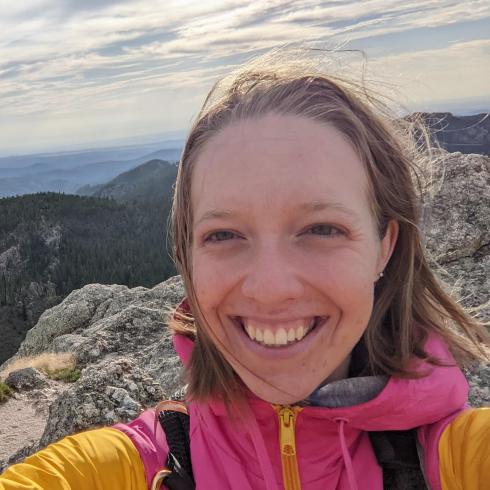
Anna Marie Riner
Kia ora! My name is Anna Marie, and I am a creative, outdoorsy individual from the Black Hills in South Dakota. This semester, I'm excited to be crossing the globe to New Zealand for some studying, tramping (hiking), eating, birding, interning, exploring and much more.

